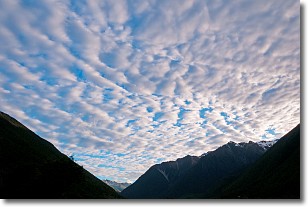Weather Alert in Montana
Hydrologic Outlook issued July 29 at 3:00PM MDT by NWS Great Falls MT
AREAS AFFECTED: Blaine, MT; Cascade, MT; Chouteau, MT; Fergus, MT; Glacier, MT; Hill, MT; Judith Basin, MT; Lewis and Clark, MT; Liberty, MT; Meagher, MT; Pondera, MT; Teton, MT; Toole, MT
DESCRIPTION: ESFTFX Soils across North-central and Central Montana are saturated due to well-above normal precipitation over the past month. Showers and thunderstorms will continue through at least Saturday over North- central and Central Montana. The Weather Prediction Center has a issued a Marginal Risk for excessive rainfall (5% chance for rainfall to exceed flash flood guidance within 25 miles of a point) Thursday through Saturday. Showers and thunderstorms today through saturday will be slow moving and produce rainfall rates capable of producing flash flooding. This will lead to the potential for flash flooding to occur with the greatest risk over urban areas, areas with poor drainage, and burn scars. Small creeks and streams have the potential for a quick but temporary rise downstream of any slow moving thunderstorm. Stay tuned to the forecast for any watches, advisories, or warnings. Please report any flooding to local law enforcement and have them relay the report to the National Weather Service.
INSTRUCTION: N/A
Want more detail? Get the Complete 7 Day and Night Detailed Forecast!
Current U.S. National Radar--Current
The Current National Weather Radar is shown below with a UTC Time (subtract 5 hours from UTC to get Eastern Time).

National Weather Forecast--Current
The Current National Weather Forecast and National Weather Map are shown below.

National Weather Forecast for Tomorrow
Tomorrow National Weather Forecast and Tomorrow National Weather Map are show below.

North America Water Vapor (Moisture)
This map shows recent moisture content over North America. Bright and colored areas show high moisture (ie, clouds); brown indicates very little moisture present; black indicates no moisture.

Weather Topic: What is Snow?
Home - Education - Precipitation - Snow
 Next Topic: Stratocumulus Clouds
Next Topic: Stratocumulus Clouds
Snow is precipitation taking the form of ice crystals. Each ice crystal, or snowflake,
has unique characteristics, but all of them grow in a hexagonal structure.
Snowfall can last for sustained periods of time and result in significant buildup
of snow on the ground.
On the earth's surface, snow starts out light and powdery, but as it begins to melt
it tends to become more granular, producing small bits of ice which have the consistency of
sand. After several cycles of melting and freezing, snow can become very dense
and ice-like, commonly known as snow pack.
Next Topic: Stratocumulus Clouds
Weather Topic: What are Stratus Clouds?
Home - Education - Cloud Types - Stratus Clouds
 Next Topic: Wall Clouds
Next Topic: Wall Clouds
Stratus clouds are similar to altostratus clouds, but form at a
lower altitude and are identified by their fog-like appearance, lacking the
distinguishing features of most clouds.
Stratus clouds are wider than most clouds, and their base has a smooth, uniform
look which is lighter in color than a nimbostratus cloud.
The presence of a stratus cloud indicates the possibility of minor precipitation,
such as drizzle, but heavier precipitation does not typically arrive in the form
of a stratus cloud.
Next Topic: Wall Clouds
Current conditions powered by WeatherAPI.com




